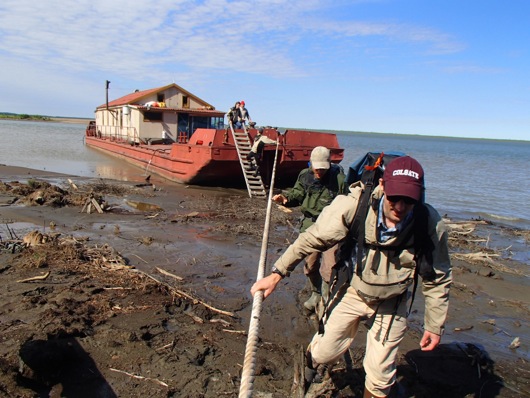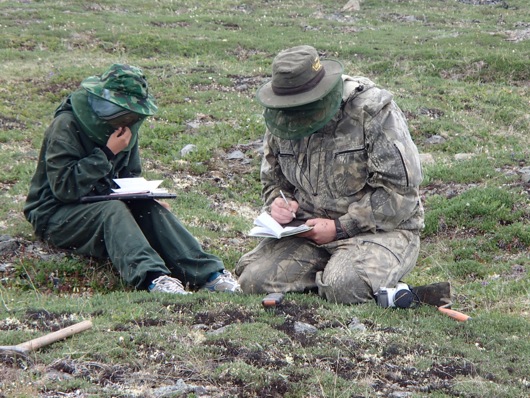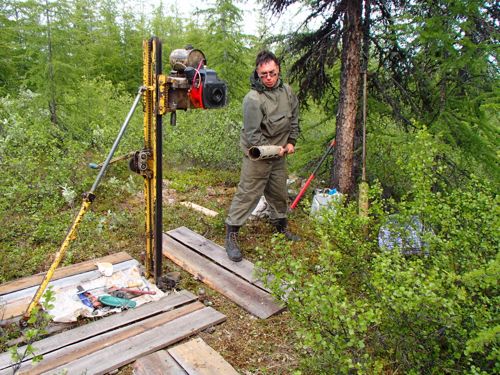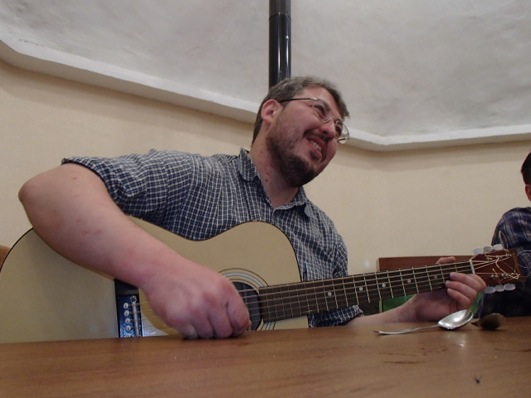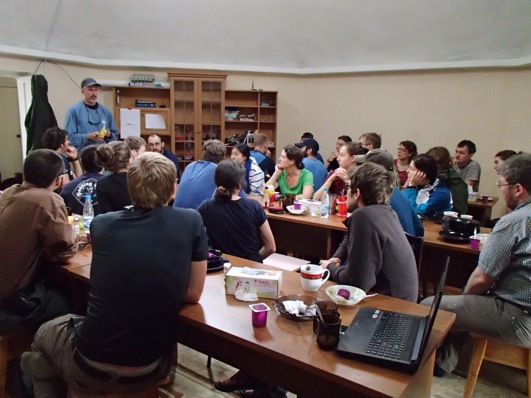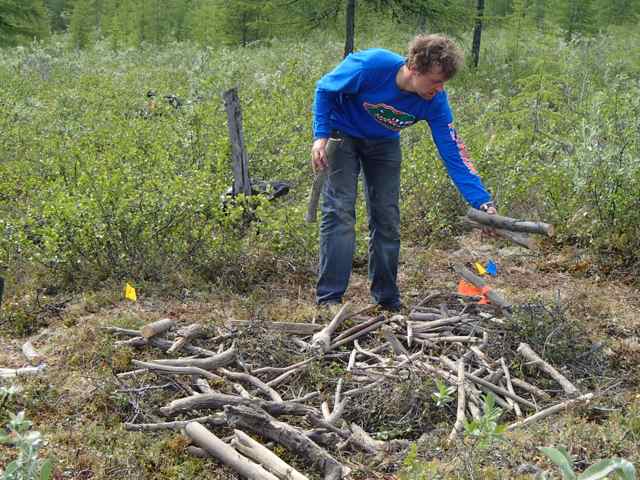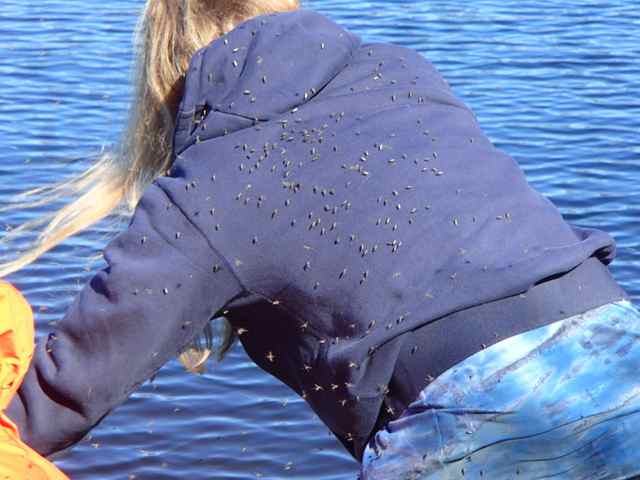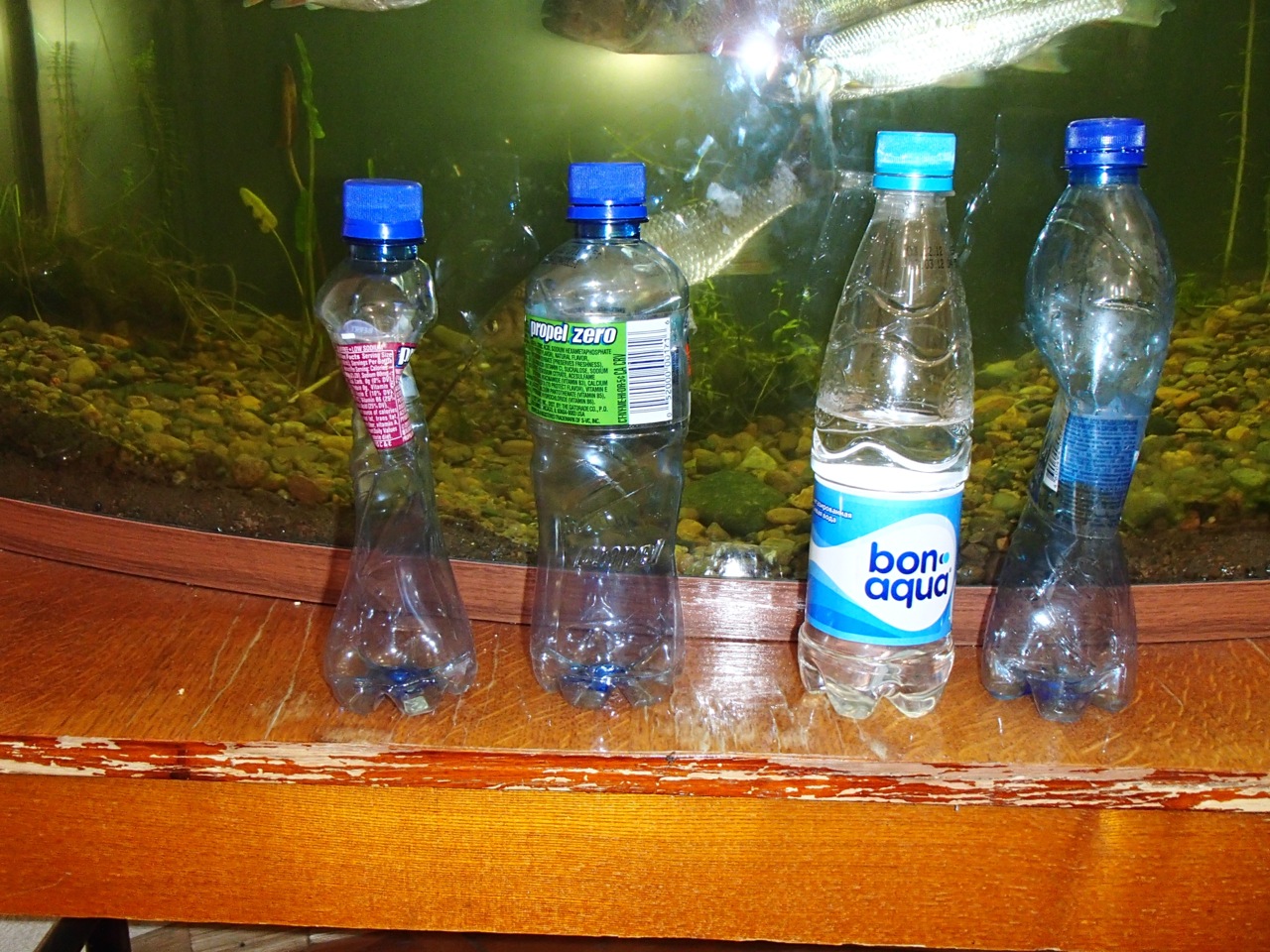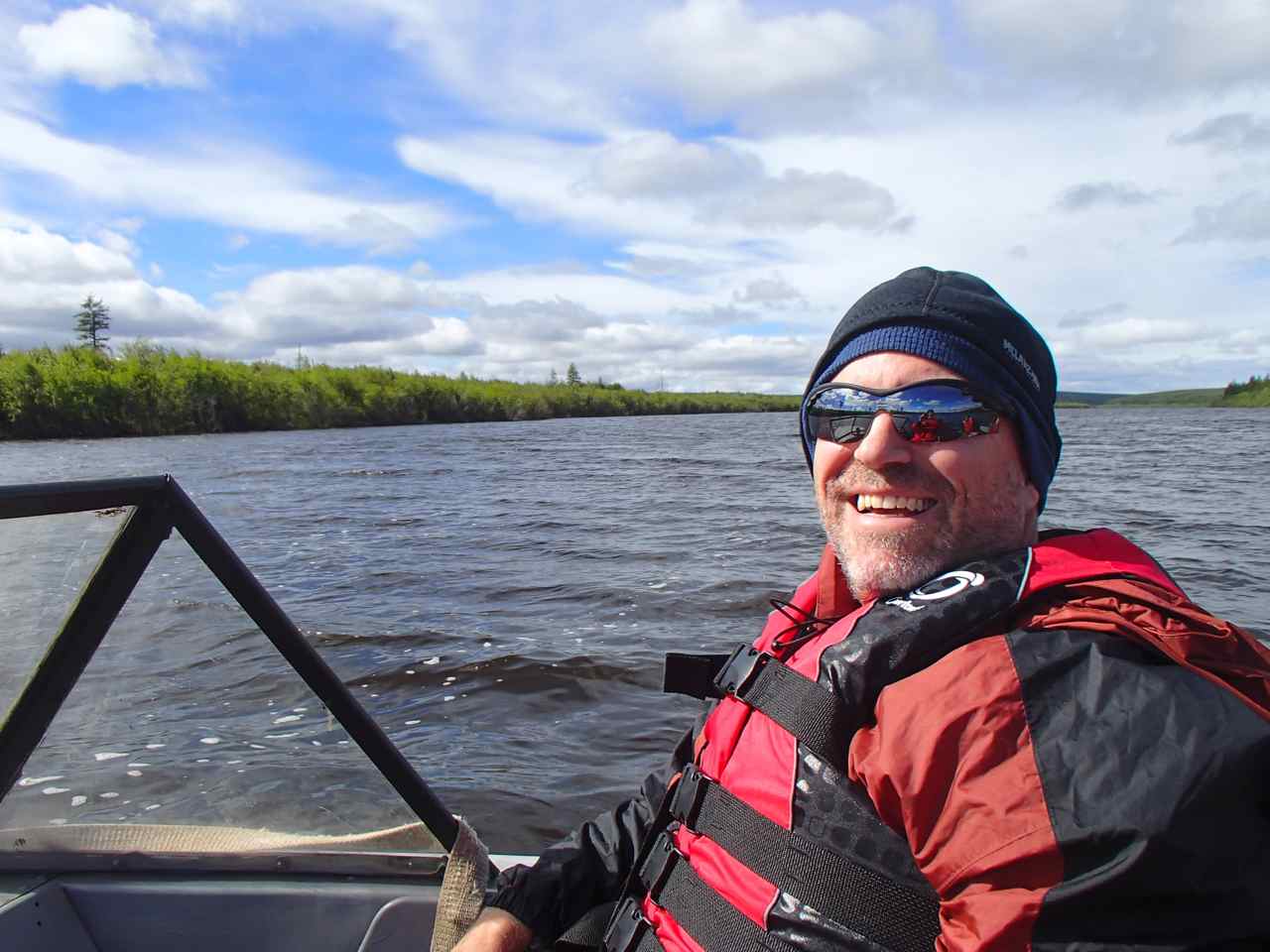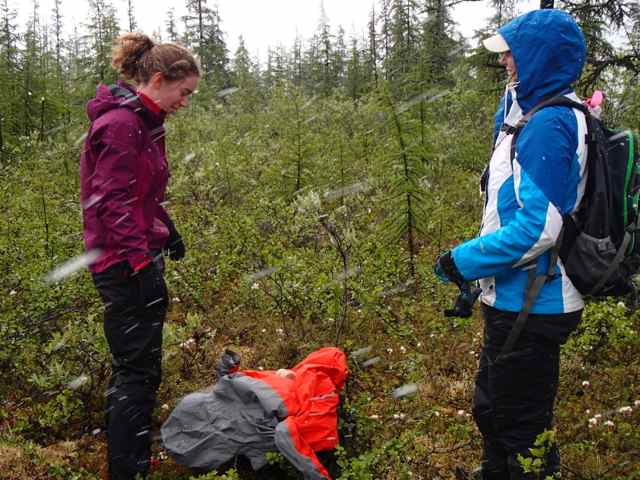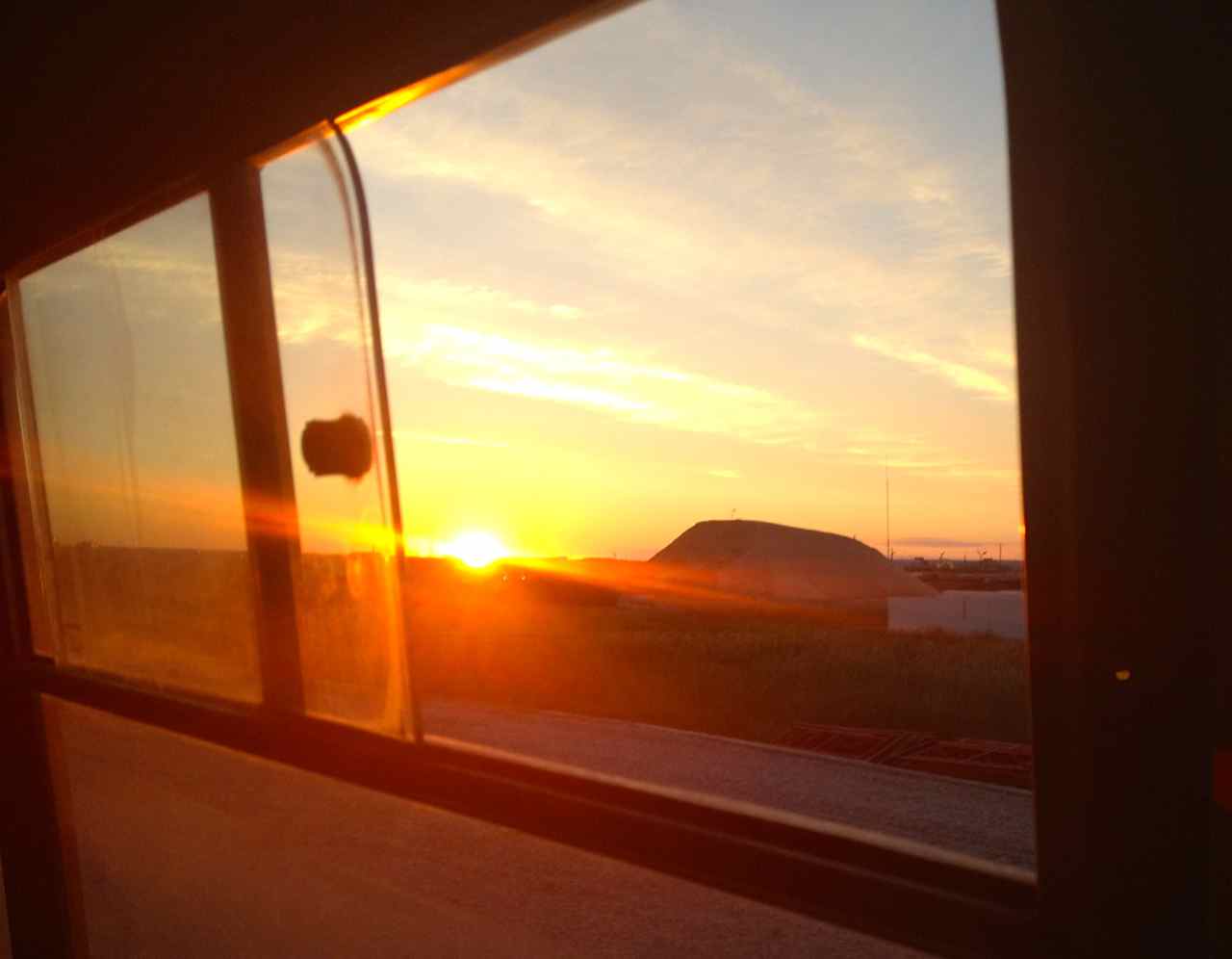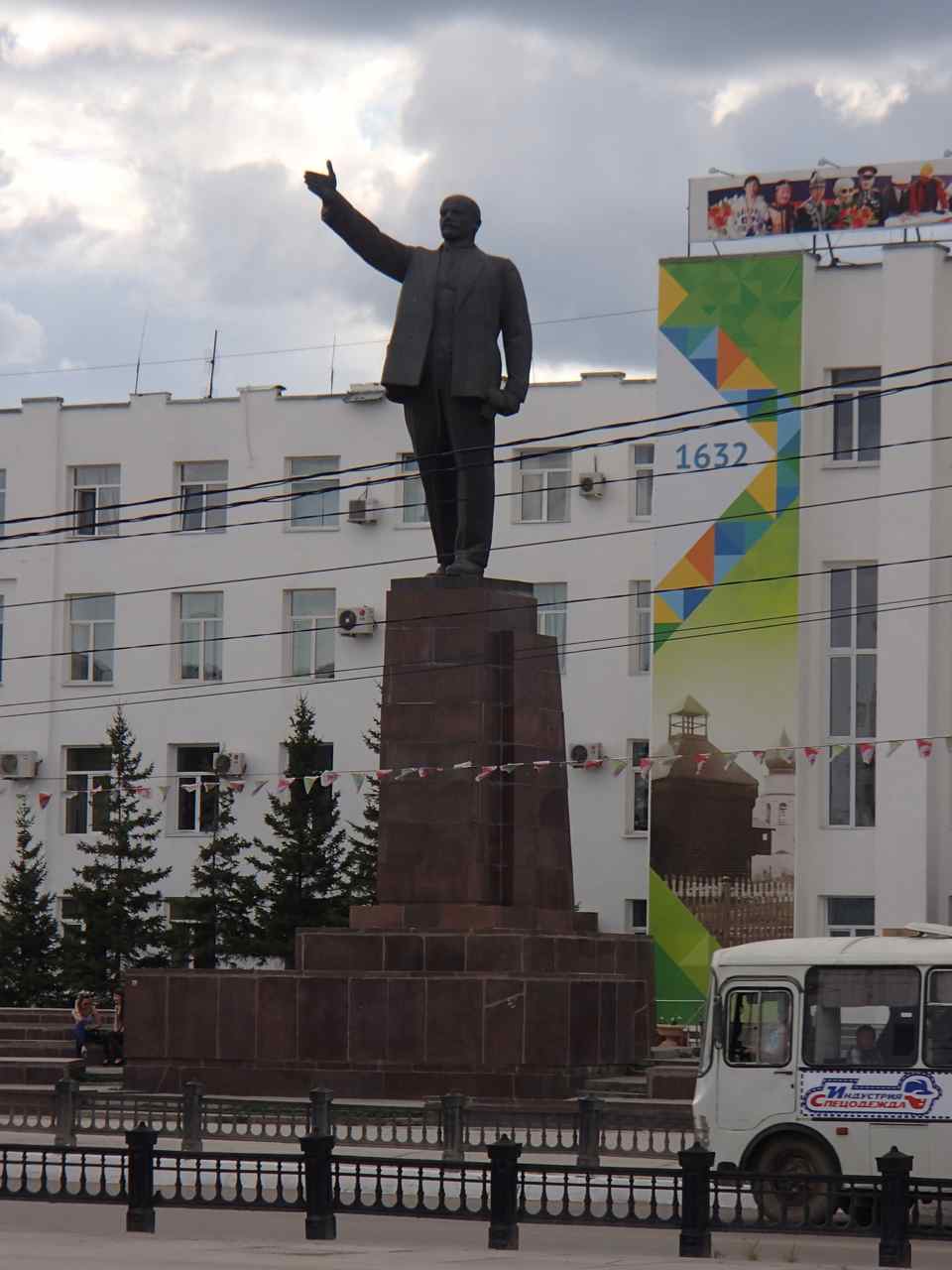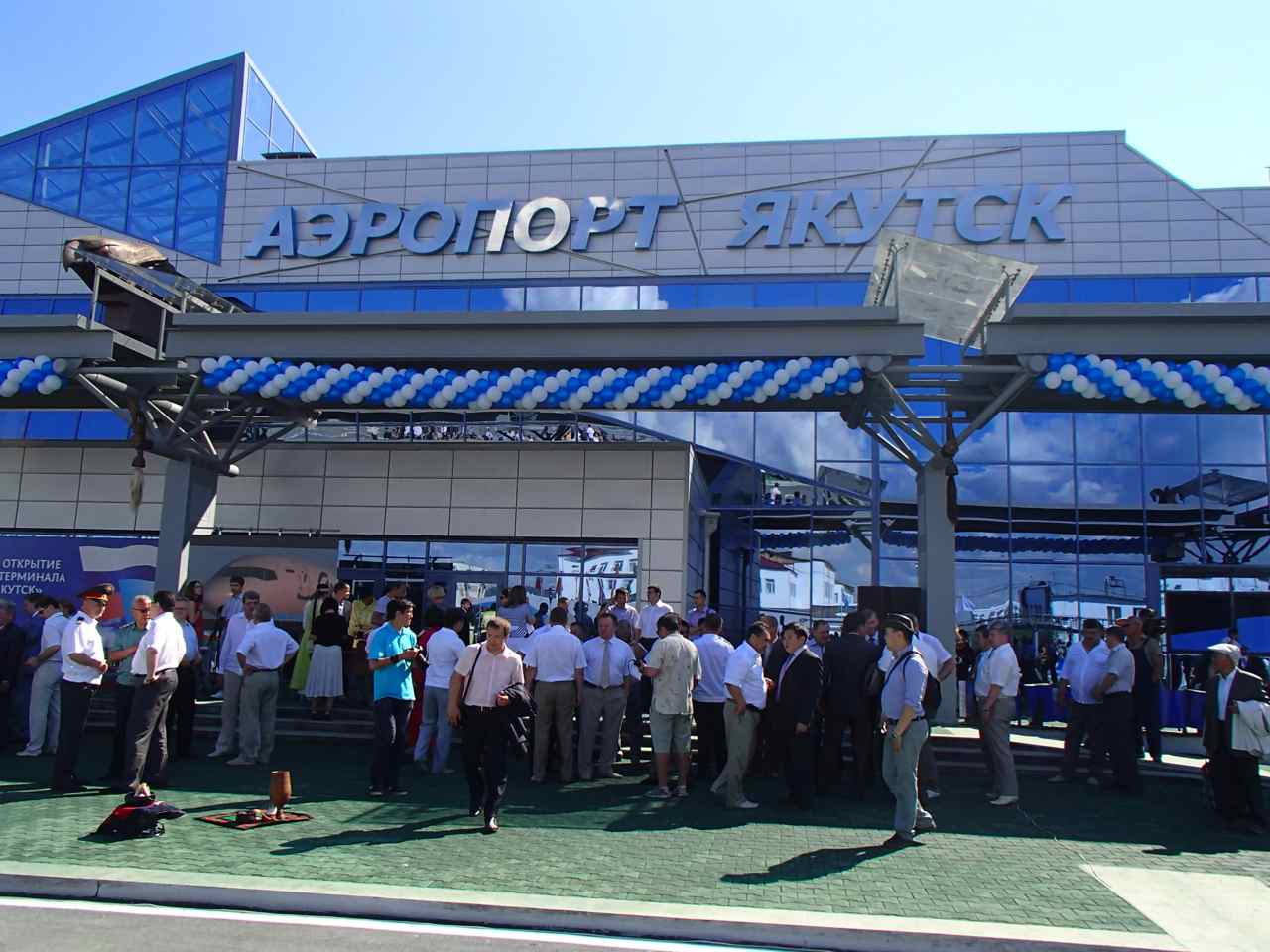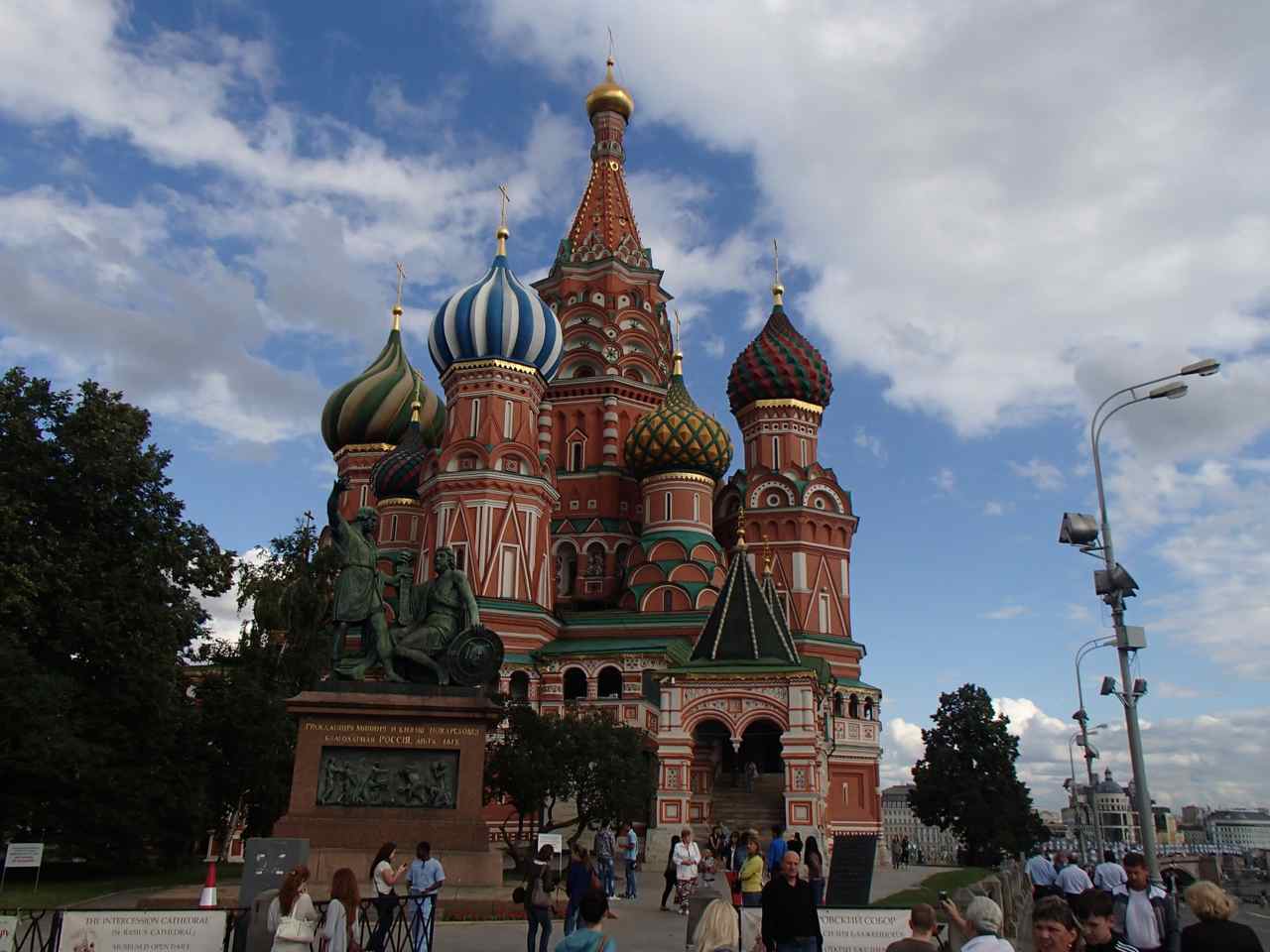-
Duvannyi Yar – A Trip Back in Time
Last night after our 9:00 p.m. dinner, we all piled onto the barge hooked up to a tug boat and headed up the Kolyma River. At 1:30 p.m. just after lunch today, we arrived at a magical place – Duvannyi Yar.
Continue reading -
Mt. Rodinka – Source of the Yedoma?
Mt. Rodinka, a small mountain (351 m) rises from essentially sea level east of the Northeast Science Station. It sits in front of a many higher and larger mountains in the distance. Rodinka, I have been told means either “Birthmark” or “Little Mother Earth” in Russian.
Continue reading -
Permafrost: Drilling and Digging
Over the last few days, I have had the opportunity to accompany Dr. Valentin Spektor of the Melnikov Permafrost Institute in Yakutsk, Russia, and Dr. Alexander (Sasha) Kholodov of the University of Alaska at Fairbanks as they use their drilling equipment to bore into the ground and collect permafrost core samples.
Continue reading -
Life at the Northeast Science Station
“Nyet” is the Russian word for “No” or “None.” Over the last few days, we have had only “inter-nyet,” – although not technically a Russian or English word, its meaning is clear. Thus, we have been out of touch in terms of posting blogs or looking at email.
Continue reading -
Dinner is Served!
I thought for sure that I would lose a few pounds roughing it in extreme northern Siberia. You know – competing with bears for available game or fishing by hand in the rivers… I was wrong. Very, very wrong!
Continue reading -
Where There’s Smoke, There’s Fire
This morning, Dr. Heather Alexander’s team conducted their first experimental burns to test the effect of burn severity on the regrowth of the larch forests and on the consequent implications on permafrost soils.
Continue reading -
Moss Fluffing and Mosquito Watching
You may ask yourself, “What is moss fluffing?” Today, Dr. Heather Alexander of the University of Texas at Brownsville, may have created the newest term in field science.
Continue reading -
High Altitude meets Low Altitude
So what happens if you fill a plastic bottle with air on the 14,265-foot summit of a Colorado mountain and bring it down to sea level in Cherskiy, Siberia? This is the experiment proposed by my students in Colorado that I wrote about in my June 19th journal on the PolarTREC site above.
Continue reading -
Preparing for an Experimental Burn
Today, I had the privilege of working with Dr. Heather Alexander of the University of Texas at Brownsville and her team, setting up 16 plots for an experimental burn to determine how the severity of fire in the Siberian boreal ecosystem affects the permafrost soils and the germination of larch trees after a fire.
Continue reading -
A Full First Day at the Northeast Science Station
Since we arrived a day later than expected, we needed to work especially hard to make up for lost time at our new home near Cherskiy. This morning, a combination of cold and snow could not hamper the work needing to be done. A favorite saying of my family in the Colorado high country definitely applied to our efforts today.
Continue reading -
Fun Highlights of Our Trip to Cherskiy
I left Denver, Colorado at 12:56 a.m. on Tuesday, June 26th and arrived in Cherskiy at 1:00 p.m. on Sunday, July 1, 2012. Below are a few of my favorite highlights of the trip with the Polaris Project that didn’t make previous journals.
Continue reading -
An Unexpected PolarTREC Day in Yakutsk, Russia
Although we had hoped to be in Cherskiy already, our unexpected extra day in Yakutsk was remarkable. Because our Polaris Project group was quite numerous (over 30), we were split into two different hotels.
Continue reading -
Stuck in Yakutsk
In the airport in Yakutsk, Russia today, our Polaris Project Expedition leader, Dr. Max Holmes, gathered everyone around him and started his announcement pointing out that few scientists do research in the Siberian Arctic because it is difficult to even get to the Siberian Arctic.
Continue reading -
Moscow and Speed-Dating-Science
The students and researchers of the Polaris Project made our way from New York to Moscow yesterday. Today, we leave Moscow and fly six time zones overnight to reach Yakutsk. It is an exciting experience to meet enthusiastic scientists and embark on an adventure together.
Continue reading
- 1
- 2

